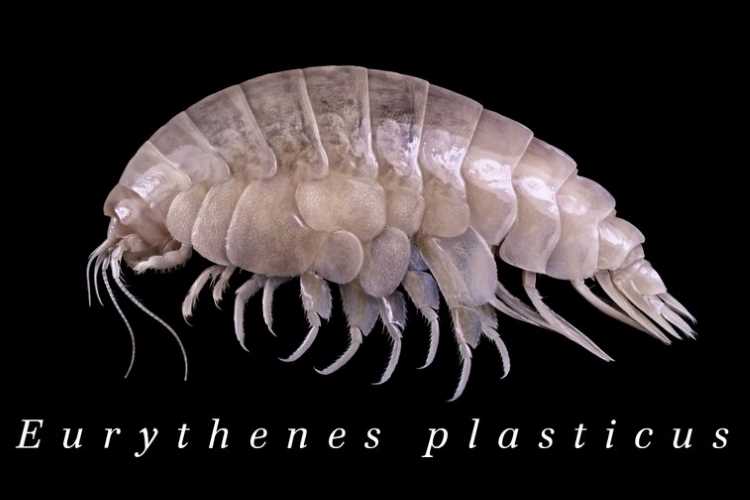Scientists from Newcastle University have discovered a new deep-sea species with traces of plastic in its body, sending warning signals on the marine plastic pollution. The species of deep-sea amphipods discovered in the Mariana Trench in Pacific Ocean between Japan and the Philippines.
Researchers led by Alan Jamieson, senior lecturer in marine ecology, has named the species Eurythenes plasticus to highlight the need for immediate action to stop dumping plastic waste into the oceans. Polyethylene terephthalate (PET), a plastic used in household goods such as water bottles, was found in the amphipod’s body, the study published in Zootaxa, a peer-reviewed scientific journal.
READ: Global warming: Melting Antarctica ice reveals uncharted island
It is estimated that at least 8 million tonnes of plastic enter the oceans every year. Plastic is used to package everything from food to pesticides — in most cases for single use — and usually ends up littering the land and polluting the Oceans. China, Indonesia, the Philippines, Thailand and Vietnam together account for 60% of the plastic waste dumped into the Ocean. Plastic waste in water breaks into micro plastics and spreads in the ocean and consumed by marine animals such as the new species.
A major source of marine debris is lost and discarded nets, lines plastic floats, traps, pots, and other gear from fishing boats. Another important source are cargo ships, aquaculture facilities, and oil and gas platforms. Pollutants from land comprise ordinary litter, waste disposed in dumps or landfills, and major waterways. Some plastic items are carried by currents to faraway places.
READ: Coronavirus outbreak may trigger $1.3 trillion losses
At times, plastic cargo lost from ships are found 10,000 kilometres away. Currents can carry discarded fishing nets hundreds of miles. Some European countries have created a model to better manage plastic waste and cut marine pollution, based on extended producer responsibility. The volume of plastic debris could increase with the expansion of coastal habitats. The problem of marine plastic pollution will continue to be a tough problem to tackle.

